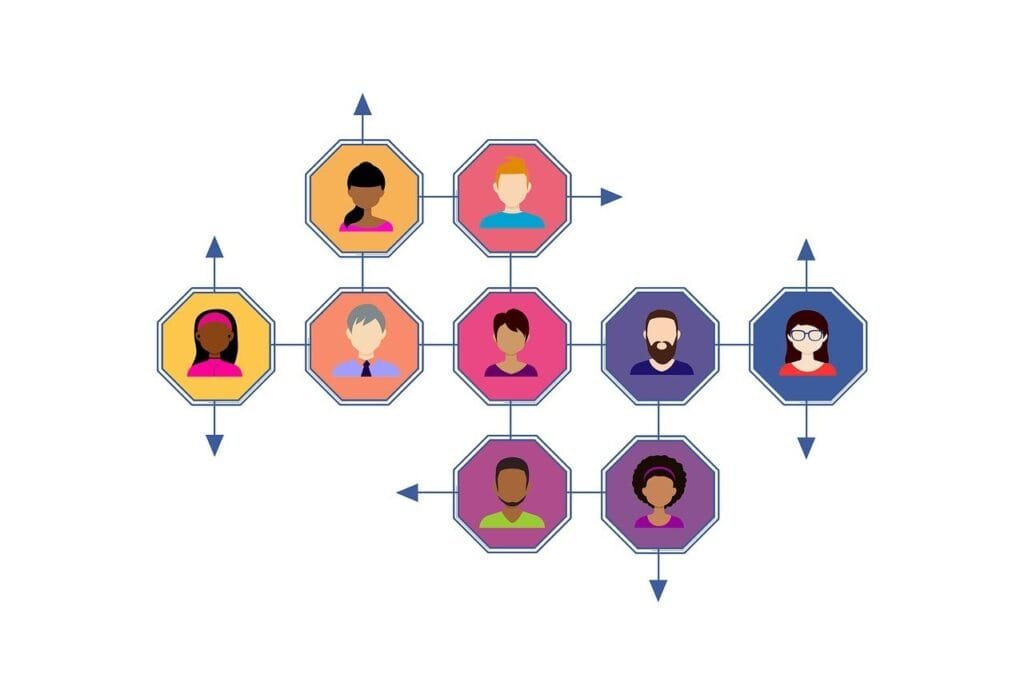This Article has been revised, edited and added to, by Poulomi Chakraborty.
- Understanding the Basics of Local SEO
- The Role of Google My Business (GMB) in Local SEO
- Online Reviews: Building Trust in the Community
- Local Backlinks and Citations: Strengthening Your Local Presence
- On-Page SEO Elements: Tuning Your School's Website
- Local Content: Connecting with the Community
- Engaging in Social Media: The Local Pulse
- Challenges in Local SEO for Schools
- Conclusion
In the digital age, where parents and students alike turn to search engines for educational information, schools can’t afford to overlook the power of Local SEO. Local Search Engine Optimization, or Local SEO, acts as a beacon, guiding the local community straight to a school’s doorstep. It’s not just about being online but about being visible to those in your immediate vicinity. In this guide, we’ll explore why Local SEO is the unsung hero for schools and how to harness its potential effectively.
Understanding the Basics of Local SEO

Local SEO is a critical component for schools looking to establish a strong online presence in their immediate geographical area. As startup founders in the educational sector, understanding and leveraging Local SEO can provide a competitive edge, ensuring your institution stands out in local searches. This section will delve deeper into the strategic facets of Local SEO, offering insights and actionable advice to enhance your school’s visibility and attract a local audience effectively.
The Strategic Importance of Local Keywords
Local keywords are the linchpin of any effective Local SEO strategy. These are phrases and terms that prospective students and parents are likely to use when searching for educational institutions in your area. A deep understanding of local keywords goes beyond just identifying the right terms; it involves comprehensively integrating them into your digital content strategy. This means optimizing your school’s website content, blog posts, and even social media updates with keywords that resonate with your local community’s search habits.
To identify the most relevant local keywords, consider using SEO tools and resources that provide insights into search volume and competition levels for specific terms. Additionally, listening to the language used by your community can uncover valuable keywords. Incorporate these terms naturally into the narrative of your web content, ensuring they align with the information or stories being shared.
Optimizing Local Landing Pages
For schools with multiple locations or offering diverse programs, creating dedicated landing pages for each segment is crucial. These pages should be rich in local keywords and specific to the community they serve. Each landing page acts as a focal point for Local SEO efforts, tailored to attract searches from potential students and parents looking for schools or programs in their vicinity.
When developing these landing pages, ensure the content is comprehensive and directly addresses the needs and questions of your target audience. Include details such as the school’s history, mission, programs offered, faculty profiles, and testimonials from students and parents. Embedding Google Maps and including contact information and calls-to-action (CTAs) are also strategic moves to improve user experience and conversion rates.
Harnessing the Power of Local Content Marketing
Content marketing plays a pivotal role in engaging and attracting a local audience. For schools, this means creating content that not only educates but also connects with the local community on a personal level. This could take the form of blog posts about local events your school is involved in, success stories of students from the community, or articles that address local issues or interests.
Moreover, video content showcasing school events, student performances, or virtual tours of your campus can significantly boost engagement and shareability on social media platforms. These content pieces should be optimized for local search by including relevant keywords, meta descriptions, and tags that highlight the local aspects of the content.
Building a Strong Local Backlink Profile
Backlinks are endorsements from other websites, signaling to search engines that your content is valuable and trustworthy. For schools, acquiring backlinks from local businesses, news outlets, and educational blogs can enhance your Local SEO efforts. Engage with your community by participating in local events, sponsoring activities, or collaborating with local organizations. These interactions can lead to natural backlink opportunities, improving your school’s search engine visibility and credibility.
Furthermore, consider reaching out to local influencers or bloggers for collaborations. Guest posts or features on their platforms not only provide backlink opportunities but also expose your school to a broader local audience.
Monitoring and Adapting to Local SEO Performance
The digital landscape is constantly evolving, and so are the algorithms that drive local search results. Regular monitoring of your Local SEO strategy’s performance is essential to understand what’s working and where adjustments are needed. Utilize analytics tools to track your rankings, website traffic, and engagement levels on local landing pages and content.
Be prepared to adapt your strategy based on these insights. Whether it’s refining your keyword focus, updating landing pages, or enhancing your content marketing efforts, flexibility and responsiveness to performance data can drive continuous improvement in your Local SEO results.
The Role of Google My Business (GMB) in Local SEO

Google My Business (GMB) serves as a critical tool in the Local SEO arsenal for schools, acting as a direct conduit to the local community. Its impact on your school’s online visibility cannot be overstated, providing a platform to showcase the best of what your institution has to offer directly within Google’s search results and maps. This section delves into advanced strategies for maximizing the effectiveness of your GMB listing, ensuring that your school not only reaches but also engages your local audience effectively.
Mastering GMB Optimization
Optimizing your GMB profile goes beyond just filling out basic information. It involves a strategic approach to present your school in a way that appeals to prospective students and parents. Every element of your GMB listing should be meticulously considered, from the primary category you choose to represent your school, to the keywords used in your description and the quality of photos uploaded.
Utilizing the Full Range of GMB Features
GMB offers a variety of features designed to improve your visibility and interaction with the local community. Regularly posting updates about events, achievements, and news keeps your profile active and engaging. Utilizing the Q&A feature to answer common queries provides valuable information upfront, improving the chances of prospective parents and students choosing your institution for further exploration.
The Strategic Value of Reviews
In the digital age, reviews are a form of currency. A proactive strategy for gathering and managing reviews on your GMB listing can significantly influence your school’s reputation. Encouraging the school community to share their positive experiences not only boosts your profile’s visibility but also provides an authentic insight into the quality of education and environment your school offers.
Managing Reviews with Care
The manner in which you respond to reviews, whether positive or negative, speaks volumes about your school’s values and commitment to its community. Crafting personalized responses to reviews demonstrates attentiveness and a genuine care for student and parent feedback, enhancing your institution’s reputation in the local community.
Harnessing Insights for Strategic Decisions
GMB provides valuable insights into how users interact with your listing, from the number of views your profile receives to the actions taken by visitors. These metrics offer a wealth of information that can inform strategic decisions about your Local SEO efforts and broader marketing strategies. Analyzing trends in this data can help identify what draws the most attention to your listing, allowing you to refine your approach for even greater impact.
Integrating GMB with Your Overall Online Presence
While GMB is a powerful tool in its own right, its full potential is realized when integrated with your school’s overall online presence. Linking directly to specific pages on your website from your GMB listing, such as admissions information or upcoming event details, can drive targeted traffic and encourage deeper engagement with your school’s online content.
The Dynamic Nature of GMB Optimization
The landscape of Local SEO and GMB is continually evolving, with Google regularly introducing new features and adjustments to its algorithms. Staying abreast of these changes and adapting your GMB strategy accordingly is crucial to maintaining and enhancing your school’s visibility in local search results. Regularly reviewing your GMB listing, experimenting with new features, and refining your approach based on performance analytics are key to leveraging GMB effectively for your school.
Through strategic optimization of your Google My Business listing, you can significantly enhance your school’s local search presence. By engaging with your community through this platform, responding thoughtfully to reviews, and utilizing the insights provided, your institution can stand out in a crowded educational landscape. Remember, the key to success with GMB is ongoing engagement and adaptability, ensuring that your school remains at the forefront of local search results and the minds of your community.
Online Reviews: Building Trust in the Community

Online reviews are a cornerstone of trust and credibility in the digital age, serving as a beacon for prospective parents and students navigating the vast sea of educational options. For schools, the strategic cultivation and management of these reviews can significantly enhance their local SEO efforts, drawing the community closer and building a foundation of trust that extends beyond the digital realm.
Cultivating a Positive Review Ecosystem
Creating a positive review ecosystem requires more than just hoping for satisfied parents, students, and alumni to leave feedback. It involves a proactive approach that encourages the school community to share their experiences. Engaging with your community through regular communication, highlighting the importance of their feedback, and making the review process as seamless as possible are pivotal steps in fostering an environment where positive reviews flourish.
Strategies for Encouraging Reviews
The approach to encouraging reviews should be multifaceted, integrating both digital and personal interactions. Reminders in newsletters, links on your website, and even QR codes displayed at school events can make leaving a review a convenient option for parents and students. Personal appeals from staff or through parent-teacher meetings can add a personal touch to the request, emphasizing the value that each review brings to the school.
Responding to Reviews: The Good, the Bad, and the Ugly
The manner in which a school responds to reviews is often as influential as the reviews themselves. Each response is an opportunity to showcase the school’s values, its commitment to excellence, and its dedication to addressing concerns.
Navigating Positive Reviews
When responding to positive reviews, a personalized touch can amplify the positive impact. Thanking the reviewer and highlighting specific aspects they enjoyed reinforces the positive attributes of your school and encourages further engagement.
Addressing Negative Reviews
Negative reviews, while challenging, offer a unique opportunity to demonstrate responsiveness and a commitment to continuous improvement. Addressing concerns with empathy, transparency, and a clear outline of steps taken to address the feedback can turn potential detractors into advocates. It’s crucial to maintain a professional and constructive tone, even in the face of criticism.
Leveraging Reviews for Local SEO and Beyond
Online reviews do more than build trust; they are a potent tool for enhancing your school’s local SEO performance. The quality, quantity, and freshness of reviews are factors that search engines consider, influencing your school’s visibility in local search results.
Utilizing Reviews in Marketing Materials
Beyond SEO, reviews can play a pivotal role in your school’s marketing strategy. Highlighting testimonials on your website, in brochures, and on social media platforms provides authentic endorsements that resonate with prospective parents and students. This strategy not only amplifies the positive feedback but also showcases the community’s engagement with your institution.
Continuous Monitoring and Analysis
The digital landscape is dynamic, with sentiments and search engine algorithms constantly evolving. Regular monitoring of your school’s online reputation and the performance impact of reviews is essential. Utilizing tools that track mentions and analyze the sentiment of reviews can provide insights into the school’s standing in the community and identify areas for improvement.
By embedding these strategies into your Local SEO efforts, your school can leverage online reviews to build trust, enhance visibility, and engage more deeply with the local community. Responding thoughtfully to reviews, actively encouraging the school community to share their experiences, and integrating feedback into your school’s development plans are key actions that underscore the importance of reviews in building a positive online presence.

Related: Check out our free SEO suite

Local Backlinks and Citations: Strengthening Your Local Presence
In the quest to dominate local search results, backlinks and citations are indispensable tools in your SEO arsenal. These elements not only signal to search engines that your school is a credible and authoritative entity within your community but also help to weave a more interconnected presence on the local web. For startup founders aiming to elevate their school’s visibility, understanding and strategically acquiring quality local backlinks and citations can mark the difference between obscurity and prominence.
Mastering the Art of Acquiring Local Backlinks
Backlinks, or inbound links from other websites to yours, act as votes of confidence in the eyes of search engines. However, not all backlinks are created equal. The strategic pursuit of local backlinks requires a focus on quality and relevance, ensuring that the links contributing to your school’s website come from respected and authoritative local sources.
Building Relationships with Local Organizations
Engaging with local organizations and participating in community activities can pave the way for natural backlink opportunities. Establish partnerships with other educational institutions, local businesses, and community groups. These relationships can lead to your school being featured on their websites, whether through event sponsorships, community service initiatives, or collaborative projects.
Leveraging Local Media
Local newspapers, radio stations, and news websites are always on the lookout for stories of interest. By positioning your school as an active participant in local events or as an innovative leader in education, you can attract media attention that results in valuable backlinks. Press releases, interviews, and feature articles can serve as conduits to achieving this goal.
Citations: The Cornerstone of Local Visibility
Citations—mentions of your school’s name, address, and phone number on other webpages—play a crucial role in local SEO, even if there is no direct link to your site. Consistency and accuracy in these citations across the web reinforce your school’s presence and legitimacy in a particular geographical area.
Navigating the Landscape of Local Directories
Ensuring your school is listed in local directories, educational portals, and business listings is a foundational step in citation building. However, the accuracy of this information is paramount. Regular audits of these listings to correct any discrepancies are necessary to avoid confusion and misdirection, which could negatively impact your local SEO efforts.
Engaging in Community Outreach
Community outreach efforts, such as hosting public events, workshops, or seminars, can result in natural citations from participants and local organizations. These engagements not only enrich your school’s connection with the community but also enhance your online visibility through mentions in event calendars, local forums, and community bulletins.
A Strategic Approach to Local SEO Success
The journey to enhancing your school’s local SEO through backlinks and citations is ongoing. It involves a continuous cycle of building relationships, engaging with the community, and monitoring your digital footprint for accuracy and consistency. By adopting a strategic approach to these efforts, your school can secure a prominent position in the local digital landscape, making it easily discoverable to those who matter most—your future students and their families.
In this endeavor, the goal is not just to increase visibility but to foster a sense of trust and community engagement. The backlinks and citations you accumulate should not only serve as SEO signals but as testimonials to your school’s active and valued presence within the local community.
On-Page SEO Elements: Tuning Your School’s Website

On-page SEO is the bedrock upon which a successful Local SEO strategy is built. For schools, optimizing the various elements of your website not only enhances its visibility in local search results but also improves user experience for prospective students and parents. This section delves into advanced strategies for on-page SEO, providing startup founders with a roadmap to refine their school’s website in a manner that is both strategic and actionable.
Strategic Keyword Integration
The integration of local keywords into your website’s content, meta tags, and alt attributes is a nuanced process that requires more than just sprinkling terms across pages. It’s about understanding the intent behind search queries and crafting content that meets these needs while naturally incorporating local keywords.
Crafting Compelling Meta Descriptions
Meta descriptions, though not a direct ranking factor, play a crucial role in click-through rates from search engine results pages. Crafting compelling meta descriptions that include local keywords and convey the unique value proposition of your school can significantly enhance visibility and attract more clicks.
Utilizing Header Tags for Structured Content
Header tags (H1, H2, H3, etc.) not only organize content on a page but also signal its hierarchy to search engines. Using these tags to structure content and include local keywords can help search engines understand the context of your pages, improving the likelihood of ranking for local searches.
Enhancing User Experience Through Website Design
The design of your school’s website impacts not just user experience but also SEO. A well-designed site that is easy to navigate, loads quickly, and is mobile-friendly can significantly improve engagement metrics, which are critical to SEO success.
Mobile Optimization: A Necessity
With the increasing prevalence of mobile search, having a website that is optimized for mobile devices is no longer optional. Ensure that your website’s design is responsive, meaning it automatically adjusts to fit the screen of any device, providing an optimal browsing experience for all users.
Speed Optimization: Enhancing User Satisfaction
Website speed is a critical factor in user experience and is also considered by search engines when ranking sites. Optimizing images, leveraging browser caching, and minimizing the use of heavy scripts can help speed up your website, reducing bounce rates and improving overall engagement.
Building a Locally Focused Content Strategy
Content is king in the world of SEO, and for schools, this means creating content that resonates with the local community. This involves more than just writing about what your school offers; it’s about creating a narrative that connects with the local audience on a personal level.
Highlighting Local Events and Successes
Your school’s participation in local events, achievements of your students and faculty, and partnerships with local organizations are all valuable content opportunities. Highlighting these stories not only enriches your website’s content but also reinforces your school’s presence and engagement in the local community.
Creating Resourceful Local Pages
For schools with multiple locations or those looking to attract students from specific areas, creating dedicated pages for each location can be highly effective. These pages should provide comprehensive information about the school’s offerings in each area, incorporating local keywords and details that appeal to the local audience.
Implementing Structured Data Markup
Structured data markup is a way to format HTML that uses a specific vocabulary, telling search engines exactly what your content is about. Implementing structured data for your school’s address, events, and reviews can enhance your visibility in search results, making your listings more attractive and informative.
Through strategic on-page SEO efforts, your school can significantly improve its visibility in local search results, attracting more prospective students and parents. By focusing on keyword integration, website design, content strategy, and structured data, you can create a website that not only ranks well but also provides a compelling and informative experience for your visitors.
Local Content: Connecting with the Community

In the landscape of Local SEO, content that resonates with and reflects the community’s values and interests is not just beneficial; it’s essential. For educational institutions, particularly those in the startup phase, crafting local content is a strategic endeavor that goes beyond traditional marketing. It’s about establishing a dialogue with the community, showcasing the school’s involvement and commitment, and ultimately, strengthening its presence both online and offline.
Developing a Community-Centric Content Strategy
A successful local content strategy hinges on understanding the needs, interests, and concerns of the community. This involves deep research and engagement, transforming insights into content that not only informs but also inspires and connects.
Identifying Local Themes and Topics
Begin by identifying themes and topics that are relevant to your local audience. This could involve local history, current events, or issues impacting the community. For schools, integrating educational insights with these themes can create powerful content that engages both students and parents. For example, articles that relate local historical events to current curricula can provide enriching reading material that also boosts local relevance in search rankings.
Collaborating with Local Figures and Institutions
Collaboration with local figures and institutions can lend authenticity and depth to your content. Interviews with local leaders, partnerships with local businesses for guest posts, or features on alumni making a difference in the community are all ways to generate content that resonates on a local level. These collaborations not only enrich your content but also expand your reach, as these local figures and institutions are likely to share these features with their networks.
Tailoring Content Formats for Local Engagement
The format of your content plays a crucial role in how it is received and engaged with by your audience. Diversifying your content formats to include videos, podcasts, infographics, and interactive posts can cater to different preferences, increasing the likelihood of engagement and sharing.
Leveraging Video to Showcase Local Involvement
Video content, from interviews with community leaders to highlights of local events or school activities, can be particularly engaging. These videos offer a dynamic way to showcase the school’s involvement in the community, making the institution’s presence felt more tangibly. They are also highly shareable across social media platforms, increasing your local visibility.
Creating Interactive Local Content
Interactive content such as quizzes related to local trivia, surveys about community needs, or interactive maps highlighting historical sites or school event locations can significantly increase engagement. This type of content not only entertains but also educates your audience about the local area, reinforcing the school’s integration into the community fabric.
Optimizing Local Content for Search and Social
For local content to truly impact your Local SEO efforts, it must be optimized for both search engines and social media platforms. This involves incorporating local keywords naturally, using local hashtags on social media, and encouraging shares and interactions from your community.
Utilizing Social Media to Amplify Local Reach
Social media platforms are invaluable for disseminating local content and engaging with the community. Tailoring content to fit the nuances of each platform, whether it’s a Facebook post about an upcoming community event or a Twitter thread discussing a local issue, can amplify your reach and engagement. Encouraging user-generated content related to school events or local collaborations can also enhance your visibility and community connection.
Through strategic development and dissemination of local content, schools can forge deeper connections with their community, enhancing their visibility and relevance in local search results. By focusing on community-centric themes, diversifying content formats, and optimizing for search and social, educational institutions can establish themselves as integral parts of the local landscape, both online and in the real world.
Engaging in Social Media: The Local Pulse

In today’s digital-first world, social media is the heartbeat of local engagement. For schools, particularly those in the startup phase, leveraging social media platforms not only amplifies your local SEO efforts but also serves as a vital conduit for community engagement. This section provides a strategic blueprint for effectively utilizing social media to enhance your school’s local presence and connect more deeply with your target audience.
Crafting a Locally Focused Social Media Strategy
A locally focused social media strategy begins with understanding the nuances of your community and tailoring your content to reflect local interests, events, and issues. This approach not only increases your relevance in local search queries but also fosters a sense of community and belonging among your audience.
Identifying the Right Platforms
Different social media platforms cater to varying demographics and interests. Identifying where your target audience, particularly parents and students, spends their time is crucial. For local engagement, platforms like Facebook and Instagram are often more effective due to their community-focused features and broad user base. However, don’t overlook niche platforms that may have a strong local following.
Engaging with Local Hashtags and Trends
Utilizing local hashtags and participating in local trends are strategies that can significantly enhance your visibility within the community. Hashtags specific to your city, region, or local events can help your content reach individuals interested in local happenings, increasing engagement and follower count.
Building Relationships with Local Influencers
Collaborating with local influencers can bridge the gap between your school and the community. Influencers who are respected and followed within your locality can act as ambassadors for your school, sharing your content and initiatives with a broader, yet highly targeted, audience.
Choosing the Right Influencers
Select influencers who align with your school’s values and have a genuine connection with their followers. It’s not always about the number of followers; relevance and engagement levels are far more important for meaningful collaboration.
Collaborative Content Creation
Partner with influencers for guest posts, interviews, or event coverage. This not only diversifies your content but also lends credibility and extends your reach within the local community.
Utilizing Social Media for Event Promotion and Community Building
Social media is an excellent tool for promoting school events, celebrating achievements, and building a sense of community. These platforms allow for real-time updates and interactions, making them ideal for engaging with parents, students, and the community at large.
Creating Event Pages and Groups
For upcoming events, consider creating dedicated pages or groups on platforms like Facebook. This not only aids in promotion but also provides a space for attendees to engage, ask questions, and share their experiences.
Showcasing School Spirit and Community Involvement
Regularly post highlights from school events, student achievements, and community service projects. These posts not only promote your school’s culture and values but also encourage shares and interactions, further boosting your local presence.
Monitoring and Adapting Your Social Media Approach
The digital landscape is constantly evolving, and so are the ways in which communities engage with content online. Regularly monitoring the performance of your social media content and being open to adapting your strategy based on what resonates with your audience is key to sustained engagement and growth.
Analyzing Engagement and Reach
Utilize analytics tools provided by social media platforms to track engagement rates, reach, and follower growth. This data can provide insights into what content performs best and at what times your audience is most active.
Soliciting Feedback and Encouraging User-Generated Content
Encourage feedback from your followers on how you can improve your social media presence. Additionally, fostering an environment where parents, students, and staff are encouraged to share their own content related to school events and achievements can significantly amplify your local SEO efforts through increased engagement and visibility.
By strategically engaging in social media with a focus on local relevance and community building, schools can significantly enhance their local SEO presence. This not only aids in attracting prospective students and parents but also strengthens the school’s bond with the community it serves.
Challenges in Local SEO for Schools
Every endeavor comes with its set of challenges, and local SEO for schools is no exception.
Overcoming Common Hurdles
- Staying Updated: SEO, as a field, is ever-evolving. Ensuring you stay updated with the latest trends is crucial.
- Managing Negative Feedback: Negative reviews or feedback can impact reputation. Tackling these with tact and transparency is vital.
- Budget Limitations: Schools often operate on limited budgets, making extensive SEO campaigns challenging. However, with a strategic approach, effective results can still be achieved.
Conclusion
In wrapping up our comprehensive guide on Local SEO for schools, it’s clear that mastering these strategies is not merely an option but a necessity for educational institutions aiming to thrive in the digital landscape. From optimizing your Google My Business listing and cultivating a wealth of positive online reviews, to engaging in the local community through backlinks, citations, and content that resonates on a personal level, every aspect contributes significantly to enhancing your visibility and reputation within the local search ecosystem.
Social media emerges as a pivotal platform for real-time engagement, showcasing your school’s spirit and fostering a sense of belonging among students, parents, and the wider community. As we navigate the ever-evolving digital space, the importance of adapting and refining your Local SEO strategy cannot be overstated. By staying informed, agile, and committed to enhancing your online presence, your school can not only achieve but also maintain a prominent position in the local search results, ensuring that your institution remains a preferred choice for education within your community.
Read Next:
- Best SEO tools in 11 Categories: Which one is the best for your business?
- Evergreen Marketing made simple: And, How to Execute an Evergreen Marketing Campaign?
- An In-Depth Guide on Blockchain Marketing
- 9 Best Cloud-based HR Software: Equip Your HR with these!






















Comments are closed.